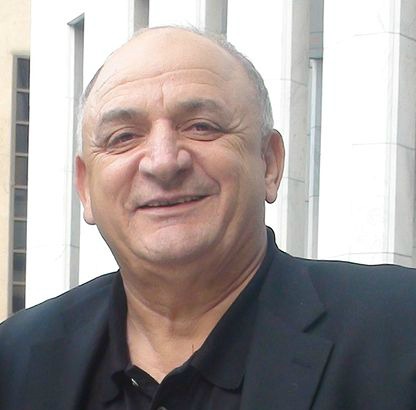Bibiconomy
I swear to God, if I see one more person write that Israelis suffer economically because of the settlements, I’ll lose it. Or if someone says #J14 protesters should demonstrate against the occupation because the State poured $100 billion into the territories since the 70’s, and that’s money that they would have seen otherwise, I’ll go bonkers.
Those $100 billion (or 80, or 120, I don’t care, it’s all estimates) wouldn’t have made our situation any better. And we, the middle and lower class, Israel’s 99%, would still have had to go to the streets. Let me tell you why:
It’s the system.
It’s the corporate capitalism.
It’s the Bibiconomy.
That Bibiconomy, a system based on that trickle-down-economy-that-doesn’t-really-trickle-down doctrine from Wall St., would have made sure that none of us would ever see much from that stash – if anything at all. Nor will we see it if the occupation ends tomorrow.
Because it’s not about saving money and suddenly everybody’s rich. It’s about how the state spends, how the state takes, and who it gives to.
Peace Now believes settlements cost at least 2 billion shekels a year. That’s a nice chunk of cash. I wonder how the state would allocate it? Hmmm, maybe we can learn by looking at how the state allocated funds during Israel’s economic, start-up boom? You know, that Israeli success that everybody’s talking about? I mean, you can’t go to a dinner party around here without someone mentioning the now famous “Start-up Nation” book and how Israel is an economic wonder that managed to get through the economic crisis unscathed, and how Bibi knows his numbers, and how Governor of the Bank of Israel Stanley Fischer is actually God and so on and so on.
As Shaul Amsterdamski, Head of News at the financial daily Calcalist, pointed out today[HEB], according to all numbers from the Finance Ministry, the Israeli economy did indeed grow over the past decade. Lots of money was made. But only by a certain amount of people.
Amsterdamski has some astonishing numbers:
- The top ten percentiles in Israel hold 35.2% of the net income (as opposed to 32.4% in 2000 – an increase of 8.6% over a decade)
- The bottom ten percentiles hold 1.2%
- Between 2000-2010, the top ten percentile was the only of all percentiles to go up – all the other 90% went down.
- The annual net income of the bottom ten percentiles grew between 2000-2010 by 15.2%.
- But the annual net income of the top ten percentiles grew by 62.6% – four times as much.
- The average income in the bottom ten percentiles is 889 shekels ($240) a month.
- The average income in the top ten percentiles was 25,703 shekels ($6946) a month. That’s 29 times higher. 29!!!
So, while it’s true that more money was made – by everyone – the gaps just kept on getting bigger and bigger. And that’s without taking into consideration the cost of living, which has basically crippled everyone from the middle class down. Corporate capitalism, orchestrated under Netanyahu’s two terms as Prime Minister and also a term as Finance Minister, literally gave money to the rich and took from the poor. It was his tax reform that did this.
This is how the money that could have been saved – and the money that will be saved – from the occupation will end up. Those 2 billion shekels ($540 million) a year won’t trickle down. They’ll just stay right up there and keep going to the rich and to the defense ministry, who will find a new threat to scare us into pumping up its enormous budget even without an occupation.
If Israel were a more egalitarian society that didn’t pander to the rich, then yes – I would have agreed: ending the occupation will boost the socio-economic status of Israelis. But until Israelis – and protesters across the world – change the system and how that money is spent, you can keep on dreaming about seeing a penny.
————————————————-
More gas, anyone?
The good news just keeps on rolling in for Israe’s mega-tycoon Issac Tshuva. After the huge success in finding gas at Leviathan, opposite the coast of Haifa, Tshuva does it again in a license called Dolphin 1. Although on a much smaller scale, this find raises some interesting questions:
Just how much luckier is Tshuva going to get, and if he does, will he still ask the state to go easy on his profits? Pretty please? With oil on top?
It’s starting to look like these gas finds off the coast of Israel aren’t just a one-off. If it keeps going like this, it’ll change geo-political statuses in too many ways to count. Some regional powers are already getting jealous…
————————————————-
It’s good to be Chief
Not many people noticed this little one, but big ‘ole former IDF Chief of Staff Gabi Ashkenazi, just got a nice cozy job at a gas company.
He’ll be getting 100,000 shekels ($27,000) a month for ¾-time job as consultant on strategic issues.
Good way to pass those three years he has to wait by Israeli law before entering politics. Which is what you do when you’re Chief of Staff in Israel.
Haaretz also pointed out an interesting little tidbit:
His ties in the military community could serve Shemen well, as it will need Defense Ministry permits to drill by the Palmahim shore. Back in 1993, the first time the seabed off Palmahim was explored, the military effectively halted the drilling by requiring that on demand, the rig be capable fo being evacuated from the site within 24 hours.
Only in 2006 did the Defense Ministry reach an agreement with the explorers. Upon the ministry’s order, the agreement states, most of the team running the site would have to decamp immediately, leaving behind a skeleton staff – and the rig. That won’t have to move. Only now, however, has Shemen applied for formal approval from the ministry, which remains pending.
Sure, he’s got connections with the Defense Ministry – but we can’t say that he and Defense Minister Barak are best pals, now, can we?



